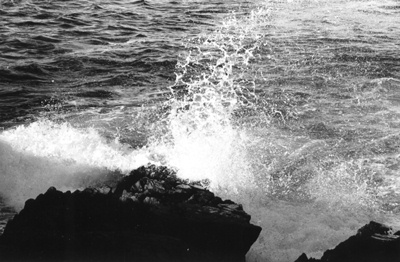All Nonfiction
- Bullying
- Books
- Academic
- Author Interviews
- Celebrity interviews
- College Articles
- College Essays
- Educator of the Year
- Heroes
- Interviews
- Memoir
- Personal Experience
- Sports
- Travel & Culture
All Opinions
- Bullying
- Current Events / Politics
- Discrimination
- Drugs / Alcohol / Smoking
- Entertainment / Celebrities
- Environment
- Love / Relationships
- Movies / Music / TV
- Pop Culture / Trends
- School / College
- Social Issues / Civics
- Spirituality / Religion
- Sports / Hobbies
All Hot Topics
- Bullying
- Community Service
- Environment
- Health
- Letters to the Editor
- Pride & Prejudice
- What Matters
- Back
Summer Guide
- Program Links
- Program Reviews
- Back
College Guide
- College Links
- College Reviews
- College Essays
- College Articles
- Back
Living with a Disability MAG
Onmany occasions teachers have asked, "Is the volume high enough foryou?" while my class watches a television documentary. Many teachers inmiddle school imposed strict rules about where in the classroom I could sit. I'vehad coaches ask if I know sign language. And during my elementary years, theschool insisted I meet with a learning specialist once a week to discuss my"feelings" about being hearing-impaired. All these restrictions wereplaced on me despite the fact that I was an above-average student and anaggressive athlete.
Being hearing-impaired is something I have dealt withmy entire life; by the time I was five years old, putting on hearing aids in themorning was just as normal as brushing my teeth. As a result of a supportivefamily and friends, I never believed that being hearing-impaired should limit mysuccess in any way.
During my 17 years, I have met many who are unfamiliarwith hearing disabilities and deal with their ignorance by stereotyping me. Inelementary school my principal told my parents I belonged in a school for thedeaf. My classmates told me something was wrong with my brain because I had towear hearing aids. My teachers would not let me sit past the second row, fearingI would not be able to hear. My "learning specialist" futilelyattempted to teach me sign language despite the fact that I had absolutely noneed or use for it. People tend to speak louder than normal when they see mythick plastic hearing aids in my ears. From time to time I still hear the term"dumb deaf" being ascribed to people with a hearing disability. Andalmost every month I hear someone say that hearing aids are for oldpeople.
If anything, my hearing disability has made me a stronger person.Because I wear hearing aids, I constantly have to prove that I am not physicallyor mentally limited. I have to work harder and earn top-notch grades in school toearn the respect of my teachers. In sports I've had to run faster, hit harder,catch better and score more points to prove I am not physically challenged by myhearing disability.
I still don't know a word of sign language and I don'tfit in with people who are deaf and sign as a way to communicate. I considermyself no different from anyone else. I wear hearing aids, but I can hear withoutthem. And I am not "half deaf' with my hearing aid on, I can hear just aswell as anyone else.
In my quest to prove my equality to mynon-disabled peers, I have made myself better than the average teenager. I wonthe coach's award and all-star award on my softball team and my team was afinalist in our league championship tournament. I have played varsity softball mythree years in high school and established myself as a writer through mypublished poetry and articles. I also have a job with a local television show inWashington, D.C.
Instead of giving in to the stereotypes, I have proventhat I can do anything I set my mind to. I truly believe I would not be thestrong and ambitious person I am today if I did not have a hearing disability. Iwould not change a thing about my past, or my test of living with a disability.

Similar Articles
JOIN THE DISCUSSION
This article has 2 comments.

5 articles 0 photos 6 comments